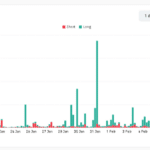( My gut feeling is that China will continue yuan appreciation in order to attract FDI,foreign direct investment,for its' recently announced infrastructure projects. China flat out does not have the money for it, cannot use its' forex for it -unless they internationalize the yuan- and they've upped the headline to 10 (or is it now 18?) trillion yuan. Export tax rebates have the same impact as yuan depreciation and will cause less consternation and are easier for China to defend in this environment. China's growth may be 2% already but the headline reported numbah will never reflect that.- AM)
By Parmy Olson, 11.26.08, 08:10 AM EST
Fortune
Beijing enacts the largest cut in more than a decade to support the country's faltering economy.
China continues to make bold moves to boost its faltering economy. The People's Bank of China made a 108-basis-point cut to interest rates on Wednesday following the markets' close as it continued its recent policy of monetary loosening in the face of slowing growth, export and industrial production figures.
Though a rate cut was expected by the central bank, its magnitude--the largest since the Asian financial crisis in October 1997--was surprising. "Bottom line is the Chinese authorities think the economy is slowing down fast," said Nigel Rendell, a senior emerging market strategist at RBC Capital Markets.
Earlier this week, the World Bank cut its' forecast for economic growth in China to 7.5%, from 9.2%, though many economists expect an even slower rate of expansion, of anywhere between 2.0% and 7.0%.
This is the fourth time in three months that Beijing has reduced Chinese interest rates, but the several prior reductions, in October and August, were by just 27 basis points each time. China's benchmark rate now stands at 2.52%. The central bank also lowered its reserve requirements by 200 basis points for large banks and by 100 basis points for smaller banks on Wednesday.
China's economy is still feeling the impact of previous measures that Beijing made to cool the economy and keep a lid on inflation; it was tightening monetary policy in the first half of this year, when the economy appeared to be growing too quickly. But in October, a lower than expected level of imports for the month showed that China was not picking up the slack from slowing economies elsewhere.
China's currency actually strengthened slightly after the rate cut: the U.S. dollar bought 6.82 yuan late Wednesday in Beijing, down from the 6.83 yuan it bought on Thursday.
Rendell expects the currency to stay between 6.80 and 6.90 against the dollar, which is the range around which it has hovered since June. If exports suffered more markedly, the analyst said Beijing might let the yuan weaken further in 2009. But, given that China still has a notable current account deficit, there would undoubtedly be strong international pressure to keep it from going down that route any time soon, which would put struggling exporters in the West at a disadvantage.
Wednesday, November 26, 2008
Subscribe to:
Post Comments (Atom)



No comments:
Post a Comment